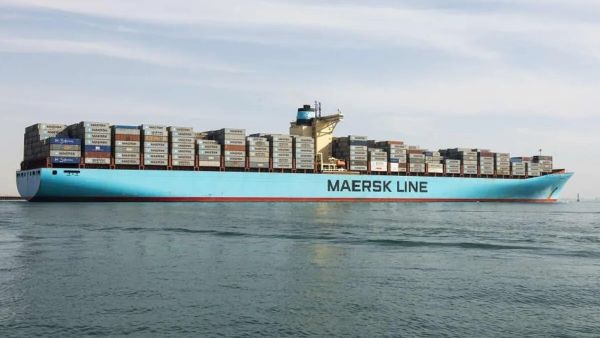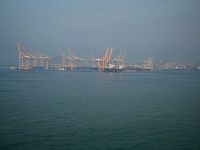ALBAWABA - French shipping company "CMA CGM" has announced the resumption of some of its vessels crossing the Red Sea, with Denmark's "Maersk" planning to take similar steps, according to statements from the shipping giants on Wednesday. This comes after a temporary suspension due to Houthi attacks in Yemen, stemming from the conflict in Gaza.
CMA CGM stated that "some ships have crossed the Red Sea" and expressed its intention to gradually increase the passage of its vessels through the Suez Canal in a message to its clients.
Maersk, on the other hand, confirmed its plan to "resume navigation in the Red Sea in both eastbound and westbound directions," indicating that ships would return to using this maritime route "as soon as possible."
Major global shipping companies, including Maersk and CMA CGM, had announced the suspension of passage through the Red Sea from mid-December, following Houthi operations in Yemen targeting ships allegedly associated with Israel or sailing to and from its ports.
These attacks prompted the United States to form an international alliance of over 20 countries to protect navigation in the Red Sea.
Maersk viewed the formation of this alliance as "good news for the entire maritime transport sector," allowing the resumption of navigation. However, it emphasized that "the overall danger in this region has not been eliminated."
CMA CGM affirmed its continuous monitoring of the situation, stating its readiness to reassess plans if necessary.
the U.S. military announced the interception of over 10 explosive drones and missiles launched by the Houthis from Yemen towards cargo ships in the Red Sea, resulting in no injuries or damages.
The Houthis, in turn, reiterated their "continuing support for the Palestinian people," reaffirming their stance "regarding the prevention of the passage of all Israeli ships."
The Red Sea, connecting the Suez Canal to the Bab el Mandeb Strait, serves as a vital passage for international navigation, with over 20,000 commercial ships passing through it annually.
Avoiding the Red Sea route entails additional costs and shipping time for transportation companies, forcing their vessels to circumnavigate around Africa when traveling from Asia to Europe, instead of crossing the Red Sea and the Suez Canal into the Mediterranean.







